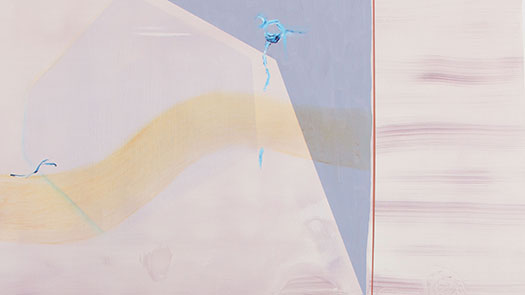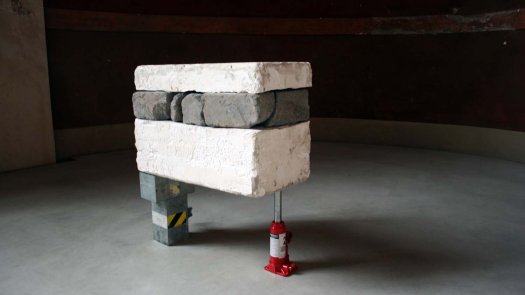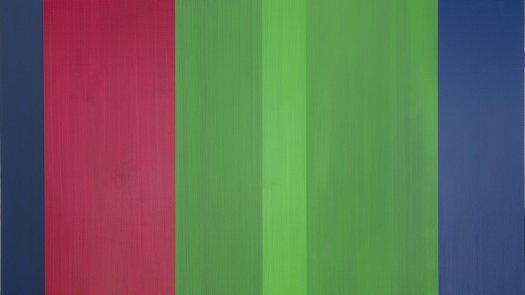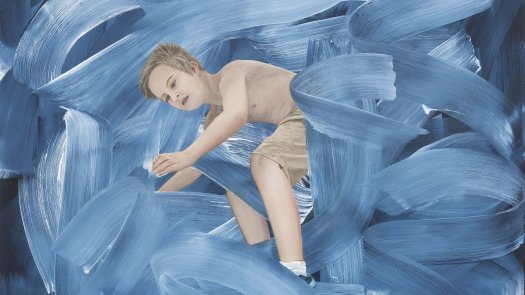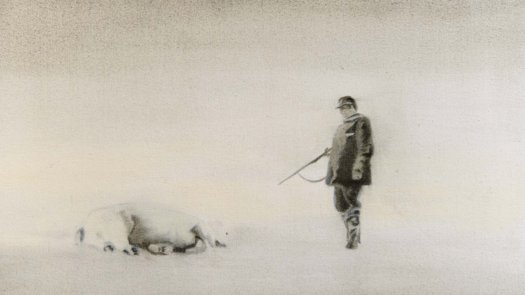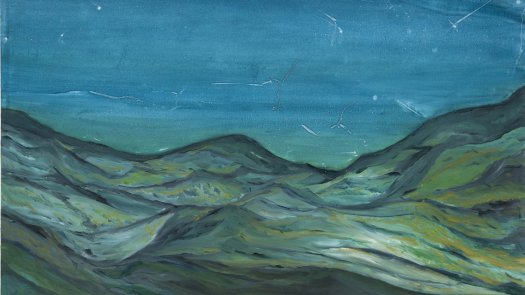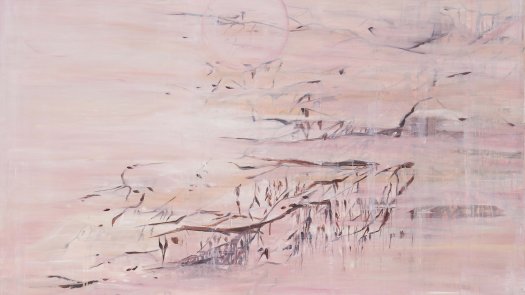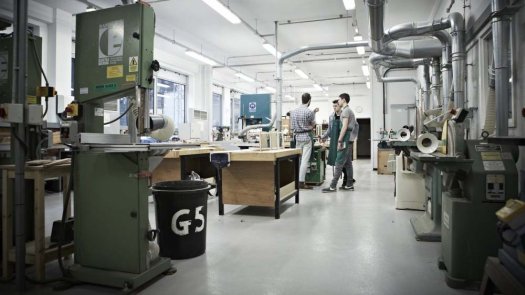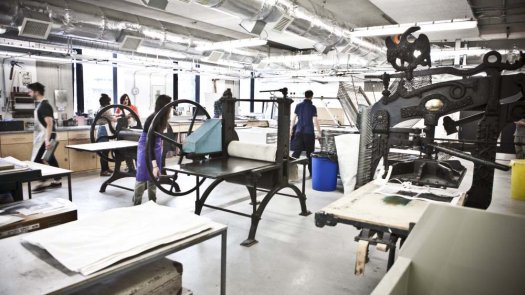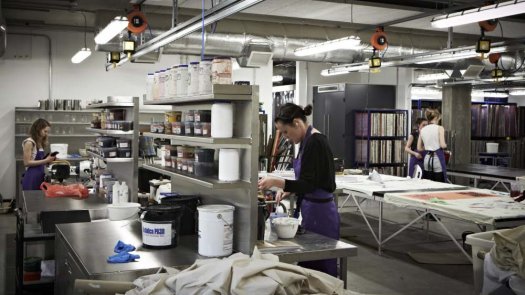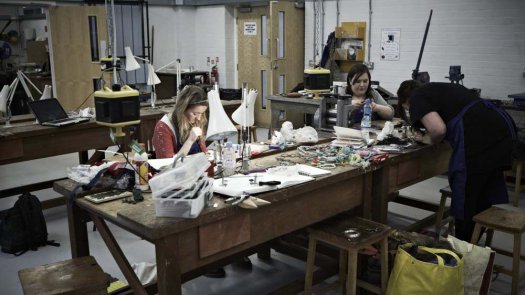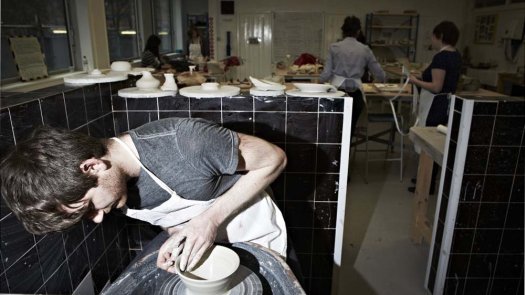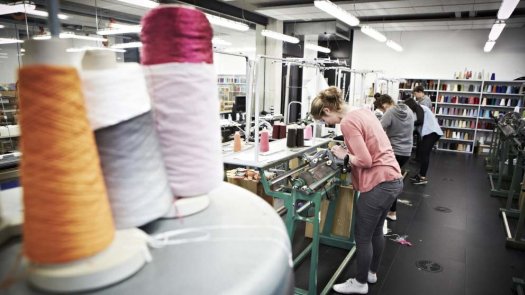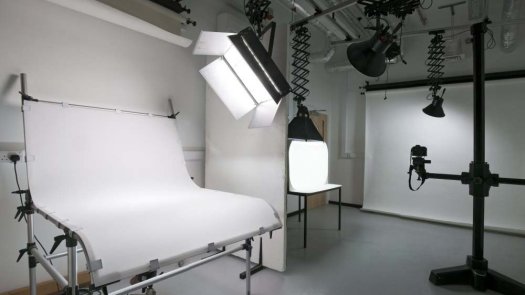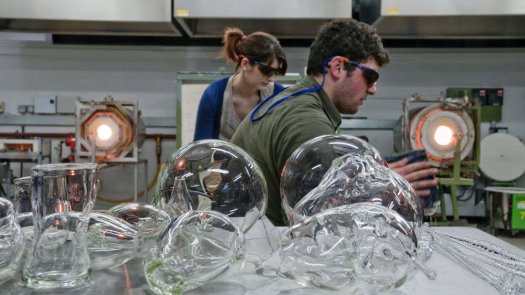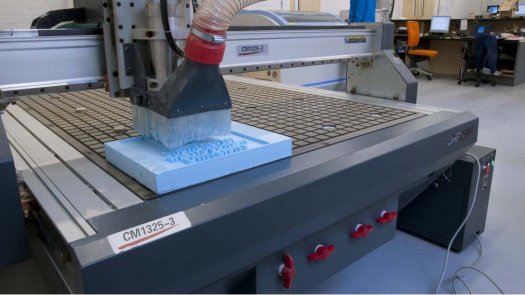Fine Art
Fine Art
MA Fine Art provides a stimulating environment in which you will be guided to develop your creative aspirations, reach a critical maturity, and gain the self-confidence and skills that will enable you to work as a successful artist.
The course is studio practice driven and relies on experimentation and critical reflection supported by individualised mentoring, lectures, seminars and group critiques. It emphasises the articulation of ideas, development of working methods and the realisation of independent work. Seminars are structured to investigate a broad range of themes relevant to the practicing artist and provide a rich diet of inspiration.
Features
- —The course is taught by practicing artists and maintains active links with an international network of art professionals and organisations.
- —Full-time students will have their own spaces within communal studios, part-time students are expected to have their own studio provision, both modes of study will have access to the full range of the School’s workshops and other resources.
- —Regular programme of artists talks and studio visits from professionals working in the field.
- —The University library has outstanding Art and Design holdings, including a special collection of artist's books and ephemera.
MFA Fine Art graduate Jenny Eden talks breaking down, building up and developing her practice through her two years of study, and what role Manchester has played in the process.
Course Content
The MA Fine Art is made up of four modules totalling 180 credits.
The programme is practice driven and focussed on the development of your existing practice. It will enable you to identify and explore new concepts and approaches negotiated through an individual Working Synopsis.
You will also be encouraged and supported to extend your experience in the professional sphere either through a practical project, research context, exchange, work experience, or other negotiated professional set of interactions with an external partner, groups of students or other art world partner.
Towards the end of the programme you will consolidate your research and practice into fully realised body of work for exhibition or other form of public situation as appropriate. You will also have developed a strategy for the continuation of your practice located and contextualised to the profession or discipline.
Year 1 (MA Full-Time)
The MA Fine Art is made up of three core units plus one option unit totalling 180 credits.
60 credits
30 credits
30 credits
Practice 1, Art: Fine Art, Working Synopsis and Development
Practice driven and focused on the analysis, reappraisal and development of your existing practice. Identification and exploration of new concepts and approaches negotiated through an individual Working Synopsis. The module is informed by the School of Art’s international research strengths in Fine Art and will engage with national and international research agendas.
Practice 2, Art: Fine Art
Driven and focused on the development of your practice through the realisation of a comprehensive and coherent body of work, this module builds upon the previous Practice 1 module and provides an opportunity to sustain the development of practice over a concentrated period of time. Within this module you will be expected to resolve a comprehensive understanding of their practice, its place in relation to the broader related discipline and the potential professionalisation and sustainability of future practice. You will be expected to be able to communicate the summary learning journey of your programme of study, the relevant methodologies used to develop your practice and the future professional pathways being explored. There is a break within this module to allow for a period of reflection that will contribute towards the final written component necessary for assessment.
Professional Practices
This module extends your understanding of the professional context of Contemporary Curating, contemporary Fine Art, and Painting practices. Through an examination of artworld institutions and structures you will be guided to consider a range of possible positions that the contemporary artist or curator can occupy in the professional domain. The module will extend your experience into the professional sphere, either through a practical project, research context, exchange, work experience, or other negotiated professional set of interactions with an external partner and/or peer group of students.
Art & Design: MA:X
This module offers focussed opportunity for students to extend and enhance their practice by including working in a wider design research community. The study of the cultural and critical contexts of design practice is vital to any student of the creative disciplines, this module will develop Master’s students’ abilities to contextualise their practice through a series of themes addressing contemporary issue in design.
Student Work
Visit our online MA Show galleries to see examples of recent work by our postgraduate students.
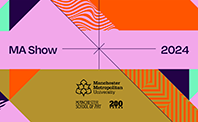

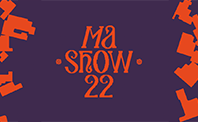



Graduates
We cultivate highly motivated, independent and creative thinkers who can transfer their skills into the creative marketplace, as entrepreneurial innovators, freelance practitioners and innovative team players. Past graduates predominantly achieve graduate-level positions or practise as sole traders, design studio artists, exhibiting artists, museum curators, archivists, researchers, academics, community practitioners, specialist technicians and filmmakers at national and international levels.
Making an Application
Entry Requirements
You will normally have an undergraduate UK honours degree (or international equivalent) or a degree-equivalent postgraduate diploma or a professional qualification. Alternatively, you may be admitted if you can demonstrate appropriate knowledge and skills at honours degree standard. In addition, you may also need to submit a Digital Portfolio.
Overseas applicants will require IELTS with an overall score of 6.5 with no less than 5.5 in any category, or an equivalent accepted English qualification. Accepted English qualifications can be viewed here.
How to Apply
Please apply online using the link below. In your personal statement please include a web address to an online portfolio containing a selection of images or videos of your past work. You should also explain how you would like to develop your practice during the course.
Fees 2025 Entry
UK and Channel Island students
Full-time fee: MA £12,000. MFA £20,000 (Year 1 £12,000, Year 2 £8,000). Tuition fees will be as stated for each year of your course providing you complete it in the normal timeframe (eg no repeat years or breaks in study).
Part-time fee: £2000 per 30 credits studied. The fee per credit will remain the same for each year of your course providing you complete it in the normal timeframe (eg no repeat years or breaks in study). The total fee for the part-time course is the same as the full-time course but the amount you pay each year may differ based on the number of credits studied.
EU and non-EU international students
Full-time fee: MA £22,002. MFA £36,670 (Year 1 £22,002, Year 2 £14,668). Tuition fees will be as stated for each year of your course providing you complete it in the normal timeframe (eg no repeat years or breaks in study).
Part-time fee: £3667 per 30 credits studied. The fee per credit will remain the same for each year of your course providing you complete it in the normal timeframe (eg no repeat years or breaks in study). The total fee for the part-time course is the same as the full-time course but the amount you pay each year may differ based on the number of credits studied.
Additional information
A masters qualification typically comprises 180 credits, a PGDip 120 credits, a PGCert 60 credits, and an MFA 300 credits.
Eligible alumni receive a 20% discount on their postgraduate tuition fees. Find out more about our Alumni Loyalty Discount.
